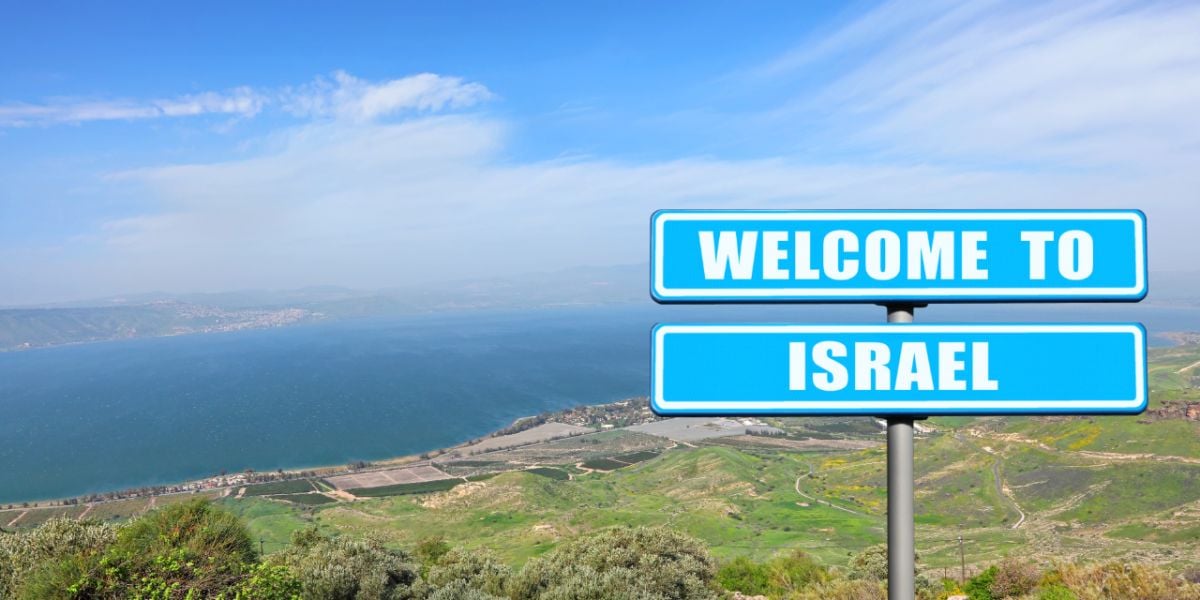
The land of Israel holds a special significance, being a hub of captivating cultures, religions, and historical narratives. Whether you're seeking excitement, a deep sense of history, or a spiritual journey, Israel presents a rich array of experiences. Yet, just like any other nation, it's vital to acquaint yourself with the laws, traditions, and visa prerequisites before you embark on your travel plans. This introduction will delve into the key aspects you should consider to ensure a safe and lawful entry into Israel.

People from numerous countries can visit Israel without needing a visa, owing to various agreements that have been established. Nevertheless, individuals from certain other countries (refer to the list below) must secure an entry visa from the Israeli consulate in their home country. It's important to note that possessing this visa does not automatically ensure admission into Israel, as the ultimate decision lies with the authorities at the point of entry.
Entry points in Israel
Tel Aviv's Ben Gurion Airport, situated on the northern outskirts of Lod, about 25 km from Tel Aviv and 48 km from Jerusalem, along with Ramon Airport in Eilat, located at the southernmost tip of the country on the shores of the Red Sea, serve as the primary gateways into Israel. Haifa, a city in the north, also features an international airport, but flight options to and from there are currently unavailable. However, reaching Haifa by sea remains a possibility. Furthermore, Ramon Airport in southern Israel facilitates international flights from multiple locations.
Haifa boasts Israel's largest trade port and extends its hospitality to cruise ships from Europe. Similarly, the port of Ashdod also greets cruise ships. It's worth noting that uniform access procedures, border police protocols, and customs regulations apply uniformly across the entire country.
Formalities on entering Israel
Israel offers various types of visas to cater to different purposes and durations of stay, whether it's a brief visit for tourism, business activities, studying, or even immigration. Thanks to their country's agreements with the Hebrew State, tourists who do not need an entry visa obtain a residence permit for 90 days or less on arrival. This permit, provided as an electronic voucher, should be retained and presented upon departure after their trip. This permit can be extended for an additional three months under circumstances such as health concerns, family matters, or specific documented events, as explained during the application process.
Travelers who need to obtain an entry visa must fulfill several prerequisites. Firstly, they need to possess a passport that remains valid for a minimum of one year from the date of their visa application. Additionally, they are required to provide a set of specified documents.
To apply for the visa, you'll need to gather a few key documents: a recent passport photo, a fully filled-out visa application form, a letter of invitation from credible Israelis including their verified identity and contact information, an employment contract from your home country, bank statements covering the six months leading up to your intended travel date, as well as any previous passports. Furthermore, you might also be requested to attend an interview as part of the application process. In the event of a visa denial, there's an option to submit an appeal to the Israeli judicial authorities.
Other possible visas include clergy, student, temporary resident, or work visas. All visas are subject to a fee, and prices vary according to the type of visa. You can find out more on the websites of the consular offices.
When heading to Israel, the departure procedures might require more time than other travel destinations. This is due to heightened security measures implemented for these flights. As a result, we strongly advise you to reach the airport at least three hours before your scheduled departure time.
Leaving Tel Aviv airport
From Tel Aviv Ben Gurion International Airport, the main gateway to Israel, you can reach the country's major cities by train, bus, shared cab, or cab.
The connection to Tel Aviv and Jerusalem is direct by train, while Haifa and Beer-Sheva require a change.
You can find shared taxi stands outside the airport terminal, where drivers approach incoming passengers to inquire about their destination. These shared cabs are a convenient option, especially if you arrive late at night or during public holidays, as their prices are quite reasonable. Just be prepared for a bit of waiting, as the taxi only departs once it's full, typically accommodating around ten passengers.
Personal cabs also wait outside the terminal but are much more expensive.
Cabs and shared cabs
Jerusalem:
https://talixo.com/taxi-jerusalem/
Tel-Aviv:
https://www.tel-aviv.fr/sherout
Haifa:
https: //city-airport-taxis.com/airporttransfers/reservations/taxi-from-Haifa-to-Ben-Gurion-Airport
List of countries whose citizens need a visa to enter Israel:
Africa
Algeria, Angola, Benin, Burkina Faso, Burundi, Cameroon, Cape Verde, Chad, Comoros, Democratic Republic of Congo, Congo, Ivory Coast, Djibouti, East Timor, Equatorial Guinea, Eritrea, Ethiopia, Gabon, Gambia, Ghana, Guinea, Guinea Bissau, Guyana, Kenya, Kiribati, Liberia, Madagascar, Mali, Mozambique, Namibia, Niger, Nigeria, Rwanda, Sao Tomé et Principe, Senegal, Seychelles Islands, Sierra Leone, South Sudan, Tanzania, Togo, Uganda, Zambia, and Zimbabwe.
Asia
Azerbaijan, Bangladesh, Bhutan, Brunei, Cambodia, China, India, Kazakhstan, Kyrgyzstan, Laos, Maldives, Myanmar, Nepal, Sri Lanka, Tajikistan, Thailand, Turkey, Turkmenistan, Uzbekistan, and Vietnam.
Europe
Armenia, Bosnia Herzegovina, the Vatican, and Kosovo.
North America
The Marshall Islands.
Oceania
Samoa and Tuvalu.
Latin America
Antigua and Barbuda, Bermuda, Bolivia, Cuba, Nicaragua and Venezuela.
We do our best to provide accurate and up to date information. However, if you have noticed any inaccuracies in this article, please let us know in the comments section below.








